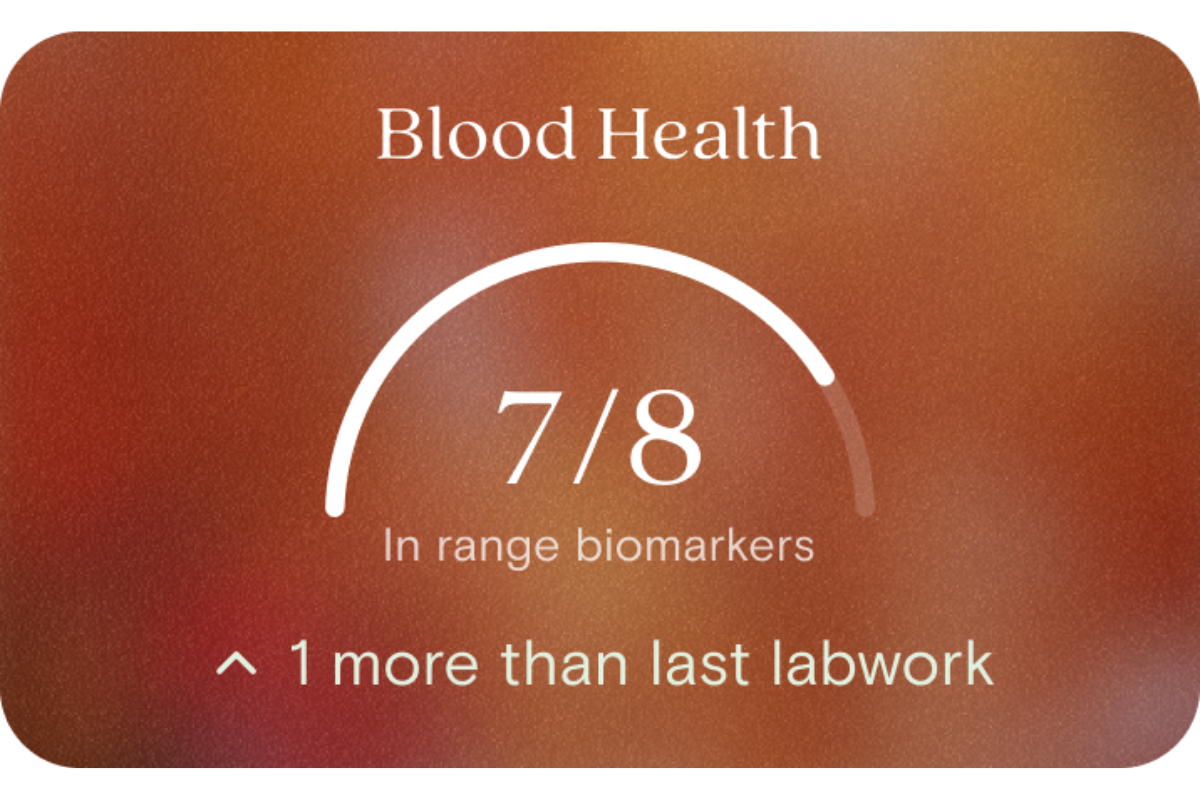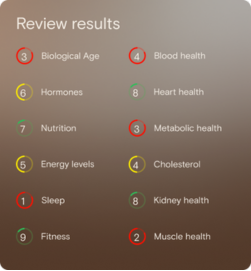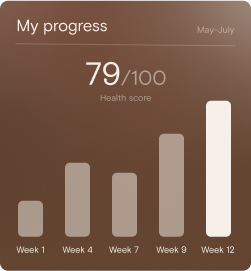Why does it matter for long-term health and wellbeing?
Healthy blood composition supports every cell in your body with oxygen and nutrients, directly influencing energy, endurance, and metabolic efficiency. Tracking these markers helps you maintain a strong foundation for overall vitality and longevity.
How do I know if my blood health is optimal?
Optimal results fall within Australian reference ranges and remain stable over time. Balanced haematocrit, haemoglobin, and red blood cell levels indicate efficient oxygen circulation, while normal MCH, MCHC, and MCV values show your red cells are functioning effectively.
What influences blood health levels?
Hydration, diet, physical activity, altitude, and overall lifestyle habits can all influence blood health markers. Nutrient intake, particularly iron, B vitamins, and protein, plays a key role in supporting red blood cell production and haemoglobin quality.
What does it mean if my blood health is outside the optimal range?
Variations in your blood health markers may occur due to shifts in hydration, nutrition, or training intensity. Monitoring results over time helps you identify trends and make lifestyle adjustments that bring your levels back into balance.
How can I support healthy blood health levels?
Focus on balanced nutrition, including foods rich in iron, folate, and vitamin B12, maintain good hydration, and include regular movement in your routine. Periodic testing helps you track progress and fine-tune habits for better long-term wellbeing.
This information is provided for general health and wellness purposes only and does not replace medical advice.




















.png)


.svg)

